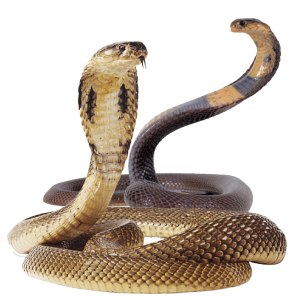
Bangkok, the vibrant capital of Thailand, is a city that offers a unique blend of modernity and tradition. Amidst the towering skyscrapers and bustling streets, visitors can discover a captivating world of nature and wildlife. One such destination that promises an unforgettable experience is the Queen Saovabha Memorial Institute, a renowned center dedicated to the study, conservation, and education of snakes.
The Queen Saovabha Memorial Institute: An Overview
Fondly known as the Snake Farm, it is a remarkable institution that pays homage to the late Queen Saovabha Phongsri, a passionate advocate for snake conservation. Established in 1923, the Institute has played a vital role in promoting awareness and understanding of these often misunderstood creatures.
Located in the heart of Bangkok, the Institute offers visitors an opportunity to explore the fascinating world of snakes in a safe and educational environment. With a vast collection of snakes of various species, the Institute serves as a living museum, showcasing the diversity and beauty of these reptiles.
The Importance of Snake Education and Conservation
Snakes are an integral part of the ecosystem, playing crucial roles in maintaining the balance of nature. However, due to widespread misconceptions and fear, these creatures often face threats from human activities such as habitat destruction and illegal hunting. The Queen Saovabha Memorial Institute recognizes the importance of educating the public about the significance of snake conservation and promoting a deeper understanding of their behavior and ecological roles.
Through its various programs and exhibits, the Institute aims to dispel myths and foster a sense of appreciation for these remarkable animals. By raising awareness and encouraging responsible human-snake interactions, the Institute contributes to the preservation of snake populations and their habitats.
Types of Snakes Found in Bangkok
Bangkok and its surrounding areas are home to a diverse range of snake species, each with its unique characteristics and adaptations. Some of the most commonly found snakes in the region include:

- Monocled Cobra (Naja kaouthia)
- Banded Krait (Bungarus fasciatus)
- Malayan Pit Viper (Calloselasma rhodostoma)
- Reticulated Python (Malayopython reticulatus)
- Indochinese Spitting Cobra (Naja siamensis)
What to Expect During Your Visit
Upon entering the premises, visitors are greeted by knowledgeable guides who provide valuable insights into the world of snakes. The Institute features a variety of exhibits, including:
- Indoor and outdoor snake enclosures
- Interactive displays and educational panels
- Venom extraction demonstrations
- Opportunities to observe snake handling and feeding sessions
Key Exhibits and Attractions at the Institute
The Queen Saovabha Memorial Institute boasts several captivating exhibits and attractions that offer a unique glimpse into the world of snakes:
Educational Programs and Guided Tours
These programs aim to foster a deeper understanding and appreciation for snakes while promoting responsible behavior and conservation efforts.
Tailored tours and workshops are available for students and educational groups, providing hands-on learning experiences and engaging activities.
For those seeking a more immersive experience, the Institute offers snake handling workshops under the guidance of experienced handlers, teaching safe handling techniques and snake behavior.
Attend seminars and lectures led by experts in the field, discussing topics related to snake conservation, habitat preservation, and sustainable practices.
Safety Tips When Encountering Snakes

While the Queen Saovabha Memorial Institute provides a controlled and safe environment for observing snakes, it is essential to exercise caution and follow safety guidelines when encountering these creatures in the wild:
Remain calm and avoid sudden movements that may startle the snake.
Never attempt to handle or approach a snake unless you are a trained professional.
Ensure you wear suitable protective attire, like long pants and closed-toe shoes, when hiking or exploring snake-prone areas.
Respect the snake’s space and observe from a safe distance.
Seek immediate medical attention if bitten by a venomous snake.
Supporting Snake Conservation Efforts
The Queen Saovabha Memorial Institute plays a crucial role in promoting snake conservation efforts in Thailand and beyond. Visitors can contribute to these efforts by:
Participating in educational programs and tours to gain a deeper understanding of snake conservation.
Supporting the Institute’s research and conservation initiatives through donations or volunteering opportunities.
Promoting responsible human-snake interactions and dispelling myths and misconceptions about these creatures.
Advocating for habitat preservation and sustainable practices that protect snake populations and their ecosystems.
Conclusion
The Queen Saovabha Memorial Institute in Bangkok offers a unique and enriching experience for visitors of all ages. By promoting education, conservation, and responsible human-snake interactions, the Institute plays a vital role in preserving these remarkable creatures and their habitats. A visit to this renowned destination promises not only an opportunity to witness the fascinating world of snakes but also a chance to contribute to the ongoing efforts to protect and appreciate these essential components of our natural ecosystems.